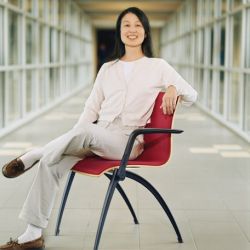Innovation Contest and Demos at UIST 2010
BLOG@CACM
UIST 2010: Papers of the First Day
Technology Transfer: A Contact Sport
NCWIT at Grace Hopper: Recruiting and Retaining Women
Barbara Liskov Keynote Grace Hopper Conference
K-12 CS Education Town Hall @ Grace Hopper
Managing Scientific Data: Coping with a Multidisciplinary World Grace Hopper Talk
Duy-Loan Le Keynote at Grace Hopper Conference
Dancing with Hundreds of Technical Women at Grace Hopper
Opening Session of Grace Hopper Conference 2010
In Search of Database Consistency
Why Enterprises Are Uninterested in NoSQL
The Impact of the Grace Hopper Celebration
The Importance of Quest to Learn
Can the U.S. Afford Universities Focusing on Research Over Teaching?
Tell Me a Story: Join the Effort to Collect Teacher Stories
Why Do the U.K. and Sweden Take Computing Education Research More Seriously Than the U.S.?
Old Geeks Never Die, They Just Get Grumpier
Mind Meld in Group Decision Making
Expanding CS Education; Improving Software Development
Shape the Future of Computing
ACM encourages its members to take a direct hand in shaping the future of the association. There are more ways than ever to get involved.
Get InvolvedCommunications of the ACM (CACM) is now a fully Open Access publication.
By opening CACM to the world, we hope to increase engagement among the broader computer science community and encourage non-members to discover the rich resources ACM has to offer.
Learn More










